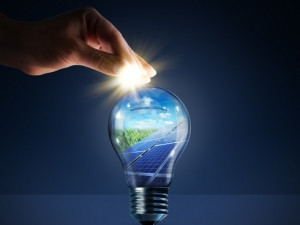
Despite power utility Eskom putting the future of renewable energy on ice, Sub-Saharan Africa is upping its game to increase investment in green energy.
In a bid to boost momentum in the regional Independent power producer (IPP) market and continue the growth trajectory of recent years, the Africa Energy Indaba set for February will bring together African utilities to meet private sector project developers and investors.
While Eskom has been accused of hindering the country's renewable energy industry, SA has been seeking foreign investment to help drive sluggish economic growth and used the recent World Economic Forum 2017 platform to market the country as a favourable investment destination.
Deputy president Cyril Ramaphosa led a 60-strong country delegation in Davos-Klosters, Switzerland.
Investment interest
According to the organisers of the Africa Energy Indaba, energy demands in Sub-Saharan Africa have created investment interest in the IPP regional market in recent years as the demand for energy in the region has grown.
However, they point out SA has halted its lauded Renewable Energy Power Producers' Procurement Programme, sparking fears over the growth of the regional IPP market.
"Despite the positive developments in regional independent power producer energy projects, significant challenges remain for IPPs, especially when it comes to governments providing guaranteed off-take to IPPs," says Paul Runge, director of projects and development finance at Africa House, a partner consultancy to the event.
"This has created significant risks for IPP developers and investors and will hamper the growth of the IPP market, unless other means and models are created to make the market more conducive to investment."
He believes collaboration between neighbouring countries and between public and private sector players can greatly increase the growth of regional power markets and reduce the overall costs, which will make power accessible for African consumers.
Eskom impasse
Meanwhile, as the impasse between Eskom and several IPPs rage on, the South African Renewable Energy Council (SAREC) says the difficulties renewable energy IPPs are experiencing with getting their power purchase agreements (PPAs) signed by Eskom "in what so far has been a well-oiled procurement programme, will no doubt start to worry conventional technology developers and IPPs".
It says gas, coal and co-generation project developers and IPPs now also need to be concerned about potential delays in closing their projects due to Eskom's reluctance to sign the final PPA.
Eskom's previous CEO, Brian Molefe, and its current interim CEO, Matshele Koko, have both refused to sign power purchase agreements with 37 preferred renewable power bidders.
SAREC says these agreements fall within the pre-construction phase after a duly fulfilled and hugely successful government-led renewable energy power producer procurement programme.
"Such non-compliance with duly undertaken power procurement has consequences beyond the renewable energy industry in that side-stepping policy introduces risk for other independent power producers currently preparing to bid for the Department of Energy's already issued or forthcoming requests for proposals," says Brenda Martin, chair of SAREC.
The industry body notes that following sustained pressure from the industry, the Department of Energy, National Treasury and even the presidency, Koko back-pedaled somewhat recently when he stated: "Let us first sign the 62c/kWh bids. We would sign 13 immediately. That would be a move in the right direction". He went on to set further conditions, saying "those that are more than 62c/kWh must sharpen their pencils," SAREC notes.
It points out that apart from legality and the risk of far-reaching negative economic consequence, Koko does not appear to have thought through the direct power sector consequences of his position.
"A 62c/kWh ceiling for new generation would be a death knell for other independent power additions. Nuclear is expected to come in at least double this level. Recent coal bids were around R1.03 /kWh. Eskom's own new-build coal stations, Medupi and Kusile, are both well north of a rand per unit. The council doubts that gas RFPs could possibly result in tariffs at 62c/kWh," Martin notes.
According to legal opinion obtained by SAREC, the body says Eskom must purchase the power that has been allocated to winning bidders through due policy process.
"Doing so sooner rather than later would go a long way to salvaging global investor and broader power producer confidence in South Africa, and ensure the full realisation of all benefits accrued to-date," Martin concludes.
Share